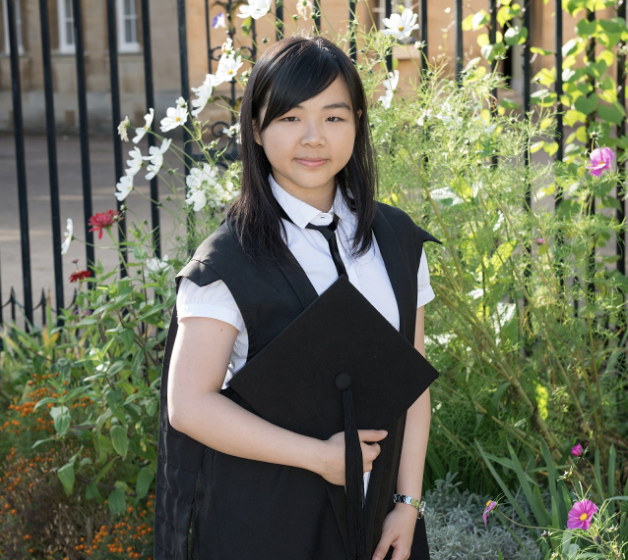| Personal details | |
| First Name: | Wing Ki (Catherine) |
| Last Name: | Wong |
| Department(s): | Bioengineering |
| Academic status (Undergraduate/Postgraduate): | Undergraduate |
| Course(s)/Qualification(s): | BEng(Hons) Bioengineering |
| Graduation year: | 2016 |
| Nationality: | British |
| |
| Employer details | |
| Job title: | DPhil in Statistics |
| Employer name: | University of Oxford |
| What does your employer do? | Research |
| Location: | Oxford, United Kingdom |
| Industry sector: | Higher Education |
| Website: | http://www.ox.ac.uk |
| |
| About the job | |
| What are your main responsibilities? | Carry out my research on antibody-antigen interface characterisation. |
| Can you describe a typical day? | I begin my day with a morning jog, followed by breakfast, and then I go into the office. We have eight DPhil students in my office. Usually we set our mornings focussing on our own research. After having lunch with my research group, we typically have meetings with our supervisor or among ourselves to discuss our research. My research group and department are very open and collaborative. These discussions can often lead to exciting side projects, if not an improvement in our respective research area. At the end of each day, my group tends to clock out at reasonable hours to achieve a good balance between work and life. Sometimes I attend talks and networking events after work, exploiting the enormous amount of opportunities in Oxford. Otherwise, I go home, relax and prepare for the next day of exciting research! |
| What is the most rewarding aspect of your current role or your greatest career achievement so far? | My project attracted industrial partnership, which means that together with the scientists in pharmaceutical companies, I can find application of my research in real life. My greatest career achievement so far is having a first-author research article in my first year of research, along with another co-authored manuscript. |
| Are there any challenging aspects? If so, what are they? | Working with some of the most talented and hardworking people means that one would always expect to be an expert and lead in their own niche, which occasionally pushes oneself too far with the pressure. |
| What skills/qualifications from your degree or other training do you make use of in your job? | As a computational researcher, my programming knowledge gained from my Bachelor course was extremely useful, along with the skills to work in an interdisciplinary team and being able to communicate technical details to non-experts. |
| How have these skills or your course made a difference in your career? | Being able to write and optimise algorithms that help extract insights from data is a crucial skill in carrying out my current research. In order to work with scientists coming from different backgrounds, my prior exposure to both experimental and computational lab work during my degree prepares me well for such task. |
